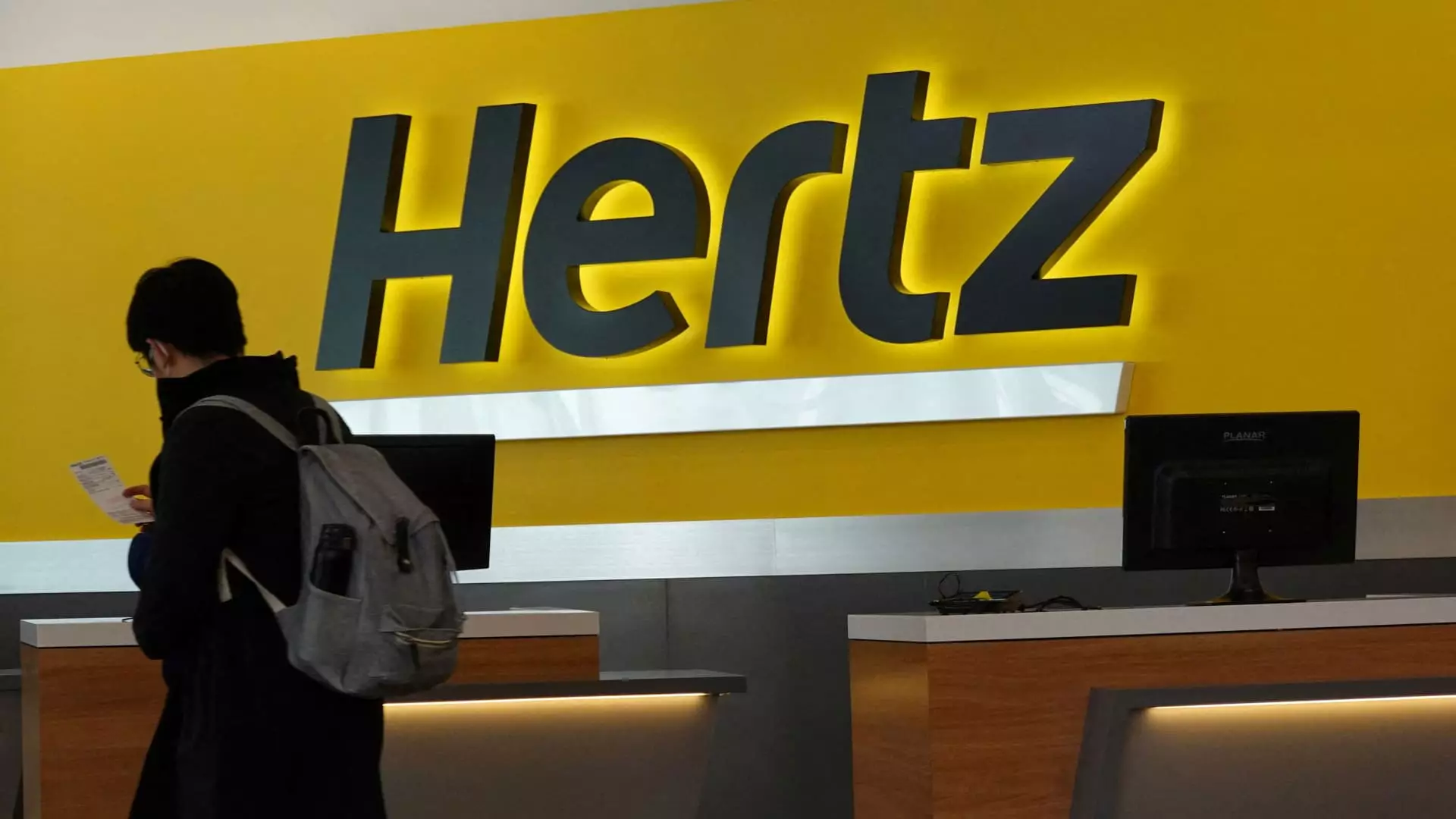In an unsettling turn of events, Hertz Global continues to navigate a turbulent road, its stock shares recently plummeting a staggering 20% during a fraught trading session. After revealing disheartening first-quarter earnings coupled with a daunting $250 million stock offering, investors were quick to hit the panic button. By day’s end, the stock had settled at an almost 17% decline, contradicting the modest optimism trailing up to the report.
This dire situation reveals deeper fractures within Hertz, a company already marred by financial distress and operational miscalculations. Analysts speculated a loss of $1.12 per share, which exceeded earlier forecasts of a $0.97 loss. Even more concerning is the automotive revenue that fell short at $1.81 billion against the anticipated $2 billion. Such shortfalls don’t just signify a drop in financial performance; they presage a potential collapse of Hertz’s strategic positioning in a notoriously competitive market.
Strategic Missteps and the Diminishing Fleet
The decision to downsize the rental fleet amid declining customer bookings has perplexed stakeholders. Hertz’s management, helmed by D.C. insider Gil West, posits that fewer cars will optimize vehicle utilization—a claim that seems dubious in light of declining rental demand. Further complicating matters are external pressures, such as the geopolitical ramifications of auto tariffs, which have exacerbated pricing instability in both new and used vehicle markets. This summer, when highways should be bustling and bookings at their peak, the prospects for renewal look grim, further exacerbated by diminishing consumer confidence and tourism.
While West expresses a commitment to prioritize fleet and cost actions, the extent to which this will invigorate revenue remains questionable. “We’re pruning some revenue,” he states, yet this pruning sounds more like a desperate reaction than a strategic overhaul. Indeed, a company’s reputation hinges not only on its balance sheets but also on customer loyalty—an elusive factor that could dwindle as Hertz limits its offerings.
Investor Reactions: Pessimism Abounds
Investor sentiment reflects a marked wariness about Hertz’s trajectory. Barclays analyst Dan Levy recently characterized the results from the earnings call as “net negative,” emphasizing the stumbling demand alongside transformative efforts touted by Hertz’s management. This analysis is underscored by skepticism regarding the company’s ambitious roadmap, dubbed the “Back-to-Basics Roadmap,” which has raised eyebrows rather than optimism.
Despite the HDR’s focus on reducing depreciation costs and enhancing direct operating expenses, the glaring demand risks overshadow all incremental gains. In an era of unstable economic recovery, businesses must tread carefully, and it appears that Hertz is at once pacing and recklessly charging ahead, sowing uncertainty that could prove irreversible. How can Hertz expect to “create more demand than we can satisfy,” when their actions suggest an abdication of foresight?
A Looming Crisis in Leadership and Accountability
At the heart of this narrative lies a crisis of leadership. A rental car company, particularly one that played a pivotal role in the economy and travel sector, should have strategies robust enough to weather economic storms and adapt to changing market conditions. Executives proclaim their focus on improving revenue while signaling retreats from ambitious goals—a disconnect that raises questions about accountability and strategy.
Moreover, the vocal endorsement from high-profile investors like Bill Ackman, who holds a significant stake, juxtaposes the growing scrutiny from a marketplace that’s increasingly weary of complacent management. Pershing Square’s involvement signals that even major investors are not impervious to the shadows lurking within Hertz’s operational vulnerabilities. What does this relationship signify when the very foundation of the company seems compromised?
As the fiscal landscape shifts under Hertz’s feet, it remains to be seen how the company will navigate the rocky road ahead. Its journey is fraught with uncertainty, and if it doesn’t recalibrate quickly, it risks losing more than just revenue—it risks losing its very identity in a world that blends digital efficiencies with consumer desires. In the race for recovery, Hertz must urgently streamline its operations and re-cultivate its relationship with the customer base, lest it finds itself permanently stranded on the roadside of irrelevance.

